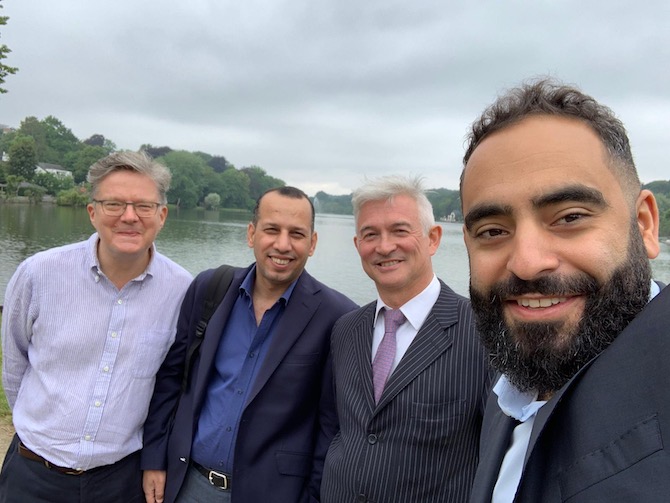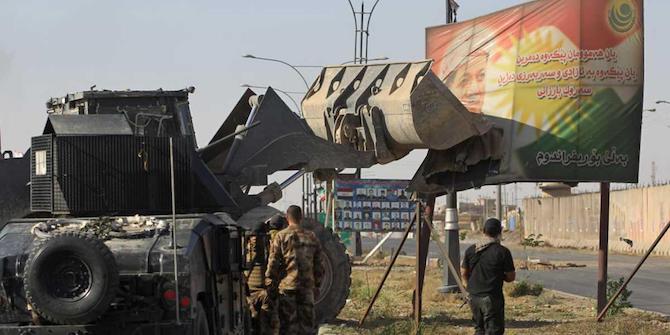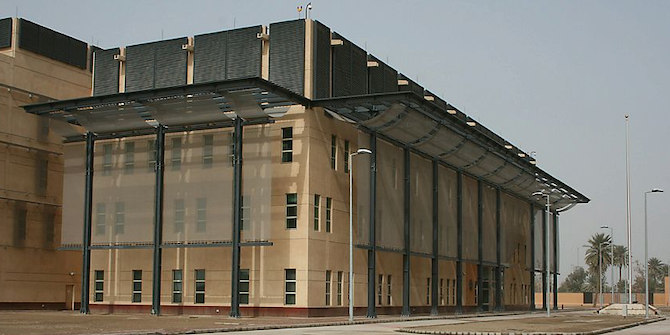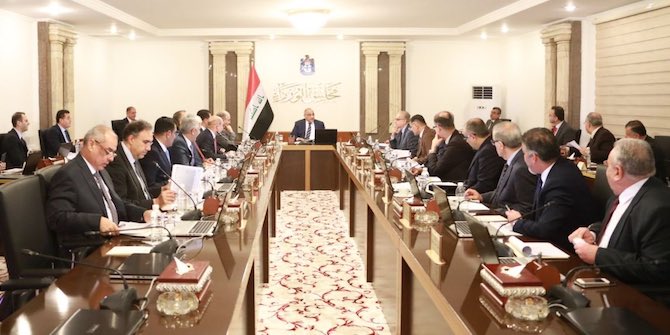by Toby Dodge

My friend and colleague, Dr Hisham al-Hashimi, was brutally murdered outside his house in Baghdad on Monday night, 6 July. This is obviously a profound tragedy for his wife and young children who found him. It is also a huge blow for all of us working on Iraq, who found in Hisham a very generous friend and guide who was happy to share his encyclopaedic knowledge of the country with everyone who was interested. Finally, the murder can be seen as a mortal blow to the Iraqi nation itself, for those who killed him did so because Hisham was deeply and actively committed to the reform of a political system currently mired in corruption and violence. It was for this commitment, and the challenge it posed, that he was killed.
Hisham will be remembered as a generous host, whether smoking cigars on the terrace of the Babil hotel or eating Masgouf in his favourite restaurant in central Baghdad. He had a zest for life, for good food and for good company, always cracking jokes, putting people at ease and explaining what was going on in his beloved Baghdad.
In his work on Iraq, Hisham managed to combine three distinct and influential roles. The first was as a public intellectual, explaining Iraq to Iraqis in frequent television appearances, newspaper columns and twitter and Facebook posts. To be driving with Hisham anywhere in Iraq – in Baghdad, Basra or Ramadi – would be to see the genuine warmth and affection he was greeted with by ordinary Iraqis who appreciated the fearless analytical role he undertook, calling out the myriad failings of Iraq’s governing elite.
Hisham was also a forensic researcher. He built up a network that spread across the country, all political parties and militias and deep into state institutions. Through this he produced empirically rich and powerfully insightful analysis based upon hours of interviews, with ground level activists, soldiers and civil servants right up to the very pinnacle of Iraq’s government. It was in this role that he published books and articles, which shaped the academic and policy debates on Iraq. It was also in this role that he introduced successive generations of journalists and researchers to his country, patiently explaining the intricacies of its politics, society and economy, without ever reducing the complexity of Iraq to the unsustainable clichés.
Finally, Hisham was deeply committed to the reform of his country’s political system. This led him to work with President Barham Salih as an adviser and to ally himself with Iraq’s newly appointed Prime Minister Mustafa Kadhimi and his team of liberal reformers. It was almost certainly this role that led to his murder. Iraq is facing a financial crisis as severe as anything in its history, while in addition the rule of law simply does not function. The aftermath of the defeat of the Islamic State has seen society overrun by a plethora of ungoverned militias, whose use of violence to defend their vested interests had recently become the main focus of Hisham’s work. It was those militias who killed Hisham and, in doing so, they threw down a challenge to the new reformist team in the prime minister’s office. They killed one of their key advisers to make the point that no one is beyond their murderous reach, however well known, connected and respected, both in Iraq and globally. The message is clear in a struggle over who controls the streets of Iraq. Is it to be the institutionalised forces of law and order, the Iraqi police and armed forces or the militias who shape the country’s future? Only the reaction of the Iraqi government to the brutal murder of one of its own will decide what the answer will be.







6 Comments